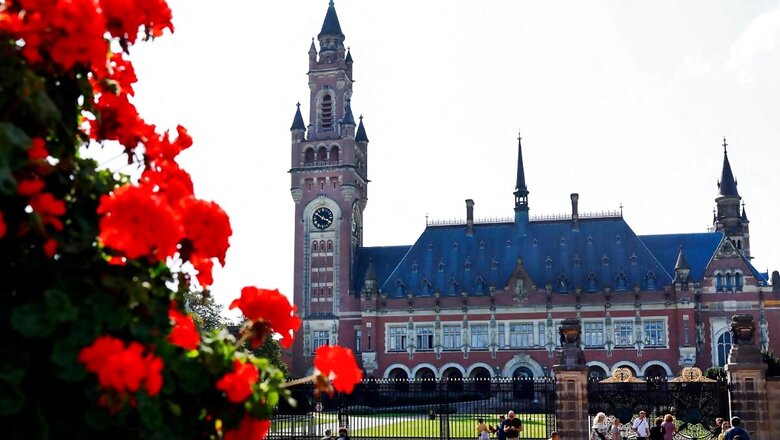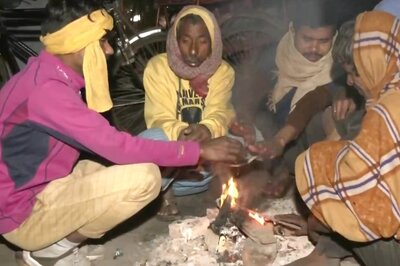
views
The top United Nations court on Thursday ordered Israel to take measures including opening more land crossings to allow food, water, fuel and other supplies into Gaza to tackle crippling shortages in the war-ravaged enclave.
The International Court of Justice issued two new so-called provisional measures in a case brought by South Africa accusing Israel of acts of genocide in its military campaign launched after the Oct. 7 attacks by Hamas. Israel stringently denies it is committing genocide and says its military campaign is self defense.
Thursday’s order came after South Africa sought more provisional measures, including a ceasefire, citing starvation in Gaza. Israel urged the court not to issue new orders.
In its legally binding order, the court told Israel to takemeasures “without delay” to ensure “the unhindered provision at scale by all concerned of urgently needed basic services and humanitarian assistance” including food, water, fuel and medical supplies.
It also ordered Israel to immediately ensure that its military does not take action that could that could harm Palestinians’ rights under the Genocide Convention, “including by preventing, through any action, the delivery of urgently needed humanitarian assistance.”
The court told Israel to report back in a month on its implementation of the orders. Israel’s Foreign Ministry had no immediate comment on the order.
In a written response earlier this month to South Africa’s request for more measures, Israel said that claims by South Africa in its request were “wholly unfounded in fact and law, morally repugnant, and represent an abuse both of the Genocide Convention and of the Court itself.”
After initially sealing Gaza’s borders in the early days of the war, Israel began to allow humanitarian supplies to flow in. It says it places no restrictions on the amounts of humanitarian aid allowed into Gaza and accuses the United Nations of failing to properly organize the deliveries.
The U.N. and international aid groups say deliveries have been impeded by Israeli military restrictions, ongoing hostilities and the breakdown of public order.
Israel has been working with international partners on a plan to soon begin deliveries of aid by sea.
Israel has repeatedly feuded with the United Nations, particularly UNRWA, the U.N. refugee for Palestinian refugees and main provider of aid in Gaza. Israel accuses the agency of tolerating and even cooperating with Hamas – a charge UNRWA denies.
The court said in its order that “Palestinians in Gaza are no longer facing only a risk of famine … but that famine is setting in.” It cited a report from the United Nations Office for the Coordination of Humanitarian Affairs that said at least 31 people, including 27 children, having already died of malnutrition and dehydration.
The world court said that earlier orders imposed on Israel after landmark hearings in South Africa’s case, “do not fully address the consequences arising from the changes in the situation” in Gaza.
The Israeli military has repeatedly claimed that Israel is ready to let in unlimited amounts of aid into Gaza, but that international aid organizations are unable to distribute the aid, leading to the bottleneck. On Tuesday, the army said they inspected 258 aid trucks but only 116 were distributed within Gaza by the U.N.
COGAT, the Israeli military body in charge of Palestinian civilian affairs, has also run pilot programs to inspect the humanitarian aid at Israel’s main checkpoints in the south and then use land crossings in central Gaza to try to bring aid to the devasted northern part of the Strip. They had no immediate comment on the ICJ ruling.




















Comments
0 comment